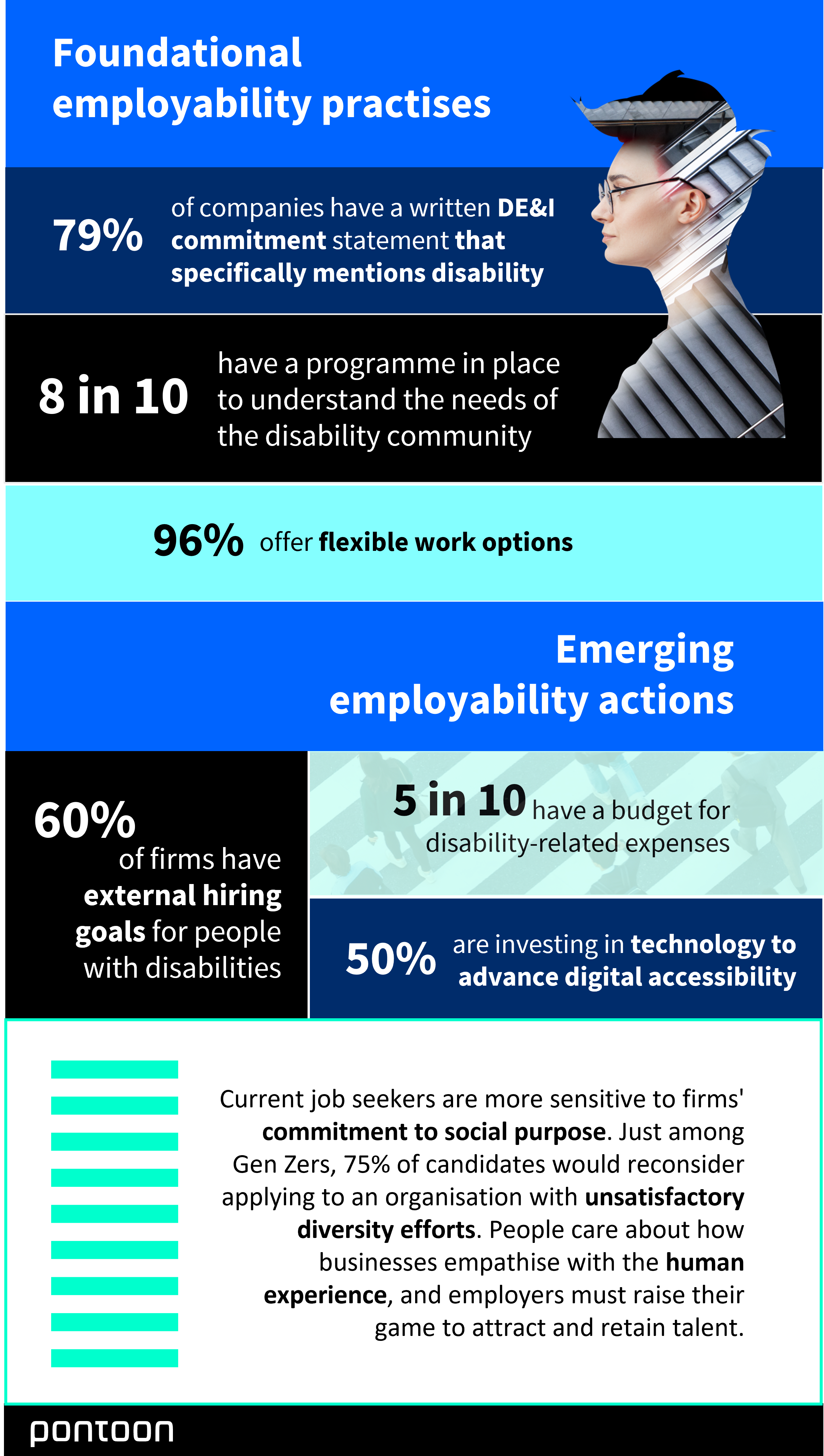Ways to support disability inclusion in the workplace
Insights
.
Firms must think creatively about hiring and be open-minded about supporting the employability of diverse talent. This includes people with disabilities who bring unique work skills and perspectives that foster innovation and benefit a company’s customers and stakeholders.
On the way to genuine inclusion and belonging
Establishing the basics of an inclusive workspace, such as ensuring reasonable accommodation for candidates and employees with visible and non-visible disabilities, is imperative. As the next step, firms need to lean into more advanced inclusive practices to better position themselves for sustainable growth.
For example, nearly 5 in 10 companies recently surveyed by Disability:IN said they have employees with significant disabilities who are part of supported employment programmes. Data suggests a considerable demand for schemes that help activate disabled workers and move from elemental accommodation to genuine inclusion. These programmes can take many shapes and forms, for example deploying certified coaches for employees diagnosed with Asperger’s, enabling digital accessibility through adapted work equipment or establishing support groups to solve everyday issues, encourage and motivate.
Current job seekers are more sensitive to firms’ commitment to social purpose. Just among Gen Zers, 75% of candidates would reconsider applying to an organisation with unsatisfactory diversity efforts, while 6 in 10 pay close attention to whether the company hires and promotes diverse talent. People care about how businesses empathise with the human experience, and employers must raise their game to attract and retain the best candidates.
Follow the infographic below for more insights on foundational and emerging practises deployed across organisations globally.
 Sources: Disability:IN/ Ripplematch
Sources: Disability:IN/ Ripplematch
Related Post
Imagine there is something hindering people from being their best at work every day.
Imagine that in 80% of cases, outsiders can't see what it is.
Reports show that disabilities are visible only ...




